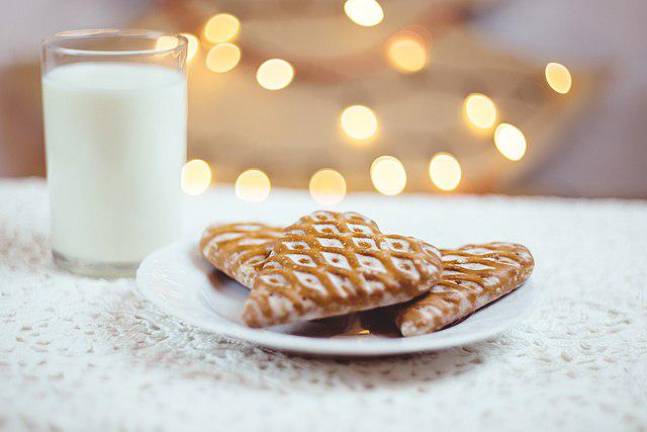Here’s What You Need to Know About Sleep Friendly Snacks
A bedtime snack with milk and cookies (but not chocolate chips) can actually help you sleep better. And while alcohol can make you drowsy, it is also a diuretic which could cause you to make midnight visits to the bathroom.

You’re about to turn in for the night when you realize you’re hungry. Yes, you know, you’re about three hours past the time limit because lying down right after eating raises your risk of heartburn, which definitely lowers your chances for a good night’s rest. But still, you crave a snack to make you sleepy. In other words, comfort-ing food.
The classic is milk and cookies. And that’s not an accident: it’s real nutrition science.
How come? First, the milk is rich in calcium, a natural calmer-downer. It’s also a great source of tryptophan, an amino acid your brain uses to make serotonin, the tranquilizing neurotransmitter Other high tryptophan food are figs, bananas, tuna, and turkey, the last explaining why you feel drowsy after last month’s Thanksgiving feast. Second, you metabolize the cookie carbs to glucose which speeds the tryptophan into your wide-awake brain.
”The connection between what we eat and how we sleep is only just taking shape,” says Antonio Culebras, MD. The neurology professor at the State University of New York Upstate Medical University in Syracuse points to the relatively recent discovery of the metabolic hormones leptin–which says, “I’m satisfied”–and ghrelin which stimulates hunger.
In short, a snack can raise the level of leptin to suppress the secretion of ghrelin and that goes a long way toward letting us sleep through the night.
So which bedtime snacks do the balancing job? You read it here first: Dairy products which include not just milk but also even ice cream plus complex carb foods such as grains (think cookies, bread, cereals) which are more effective than simple carbs because the complex ones are digested more slowly avoiding the sugar rush that can keep you hopping. In both cases, moderation is the watch word: A cookie or two, one muffin, a small bowl of cereal and milk.
After that, the well-regarded web site WBMD offers these four simple rules:
1. Don’t eat a heavy meal within four hours of going to bed.
2. Don’t eat or drink anything that has caffeine after noon. (Surprise: Chocolate, like coffee, is a serious source of caffeine. If you snack on ice cream, maybe make it vanilla.)
3. Do eat a small snack if you wake up hungry, but don’t get into the habit of eating too much, as you may gain weight.
4. Do avoid eating a lot of protein, but a small piece of cheese or a dab of peanut butter with your crackers is OK.
And you can add a fifth rule to the list: Avoid alcohol at bedtime. Yes, a drink or two may make you drowsy, but it also disrupts your brain’s sleep pattern and, says Mayo Clinic psychiatrist Bhanu Prakash Kolla, it’s a diuretic likely to increase the number of times you are awakened by the urge to pee.
In the end, if all fails and you are still wide awake night after sleepless night, you might consider consulting one of Manhattan’s sleep med centers:
NYU Langone Health Sleep Disorders Program (https://nyulangone.org/care-services/sleep-disorders-program Weill Cornell Medical Center’s Center for Sleep Medicine https://weillcornell.org/services/neurology/center-for-sleep-medicine), or the seven , yes seven, Mt Sinai sleep center sites (https://www.mountsinai.org/care/pulmonology/services/sleep-disorders/locations)
Sweet dreams.